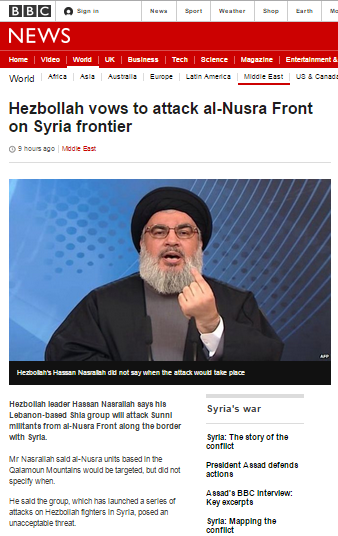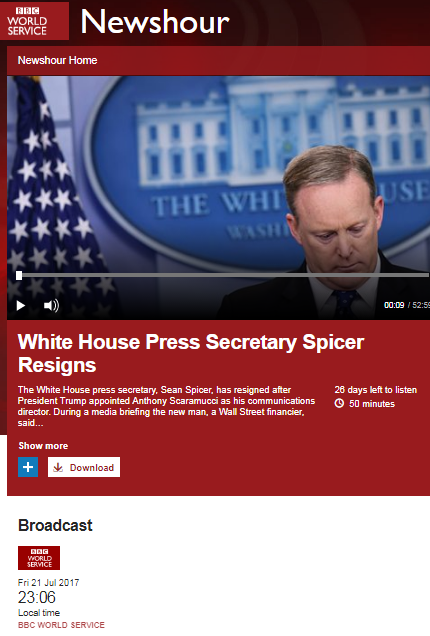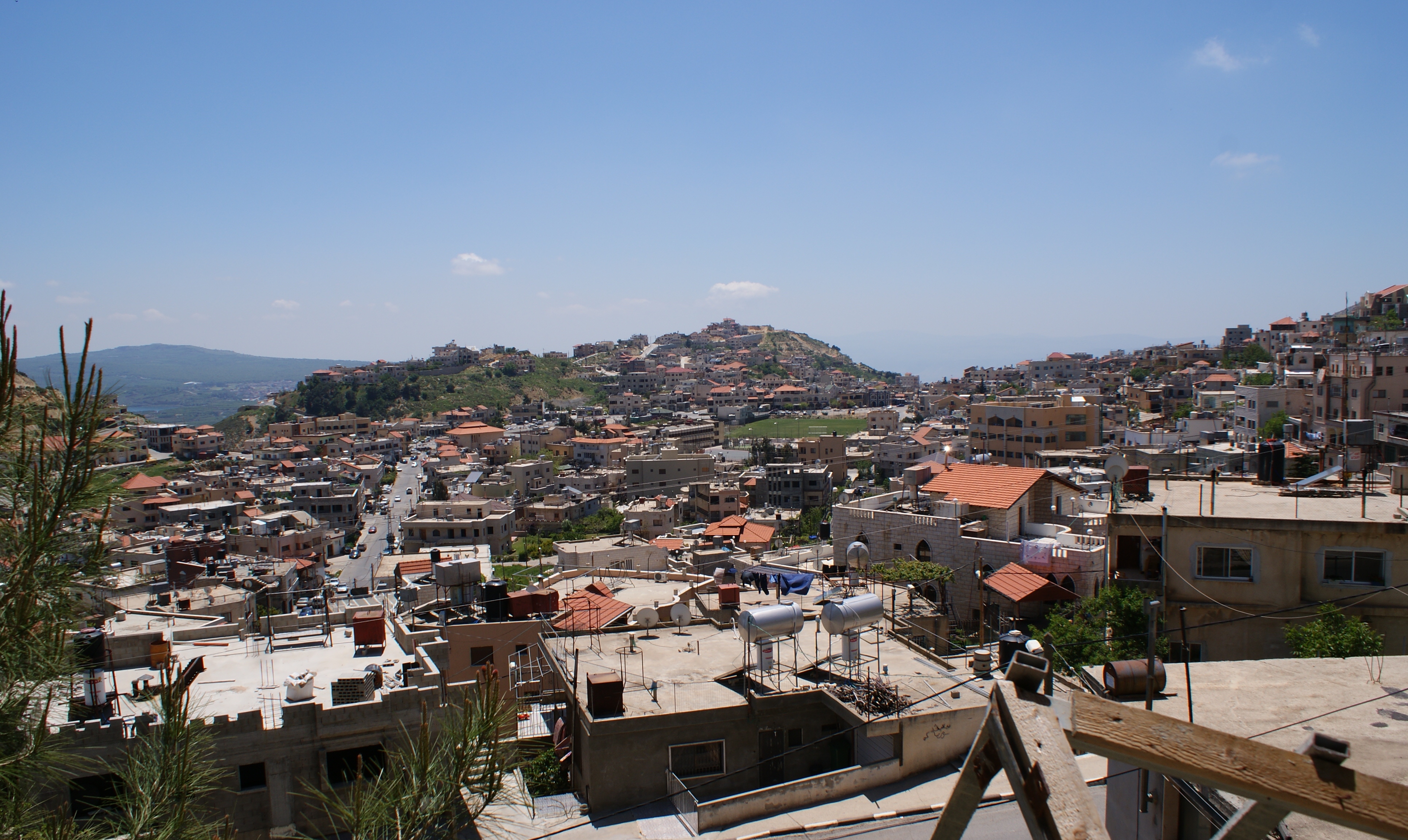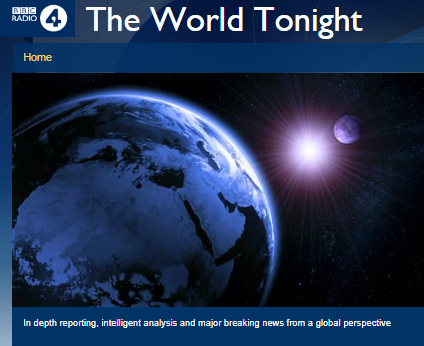An article which appeared on the BBC News website’s Middle East page on May 6th under the headline “Hezbollah vows to attack al-Nusra rebels ‘inside Syria’” is remarkable on two counts.
Whilst this is by no means the first time that the BBC has presented airbrushed and uncritical accounts of speeches made by Hassan Nasrallah, this report on the Hizballah leader’s May 5th address makes no attempt to provide readers with background and context necessary for informed understanding of the story’s topic.
Readers are told that:
“Hezbollah leader Hassan Nasrallah says his Lebanese Shia group will launch an attack inside Syria on Sunni militants fighting for the al-Nusra Front.
Mr Nasrallah said the mountainous border area of Qalamoun would be the target, but did not specify when.”
The fact that Hizballah has already been involved in the conflict in Syria for considerable time is reflected only in the following sentence.
“Hezbollah, an ally of Syrian President Bashar al-Assad, has sent hundreds of fighters to join the Syrian civil war.”
Significantly, neither in that statement nor anywhere in the rest of the report is any mention made of the highly relevant fact that Hizballah functions as one of Iran’s proxies in Syria – as outlined in this report.
“As the fighting in Syria enters the fifth year, it is evident to all that what is happening is not a local civil rebellion against a tyrannical regime, but a war in which both the Syrian regime and the Syrian opposition are being actively supported by numerous regional and international forces. The most prominent foreign element involved in this war is Iran, which is throwing its entire weight into ensuring the survival of the regime. In addition to providing economic aid, arms, and advice, its support for Syrian President Bashar Al-Assad includes combat forces – from Iran’s Islamic Revolutionary Guards Corps (IRGC), from Hizbullah in Lebanon, and from the Iraqi, Afghan and Pakistani Shi’ite militias that are loyal to Iran.”
The BBC report states:
“In a televised address on Tuesday, Mr Nasrallah said cross-border attacks by militants from the al-Qaeda affiliated al-Nusra Front posed an unacceptable threat to Lebanon’s security and required “radical treatment”.
“The (Lebanese) state is not able to address this issue… so we will proceed with the necessary treatment and assume the responsibility and consequences,” he added.”
The BBC makes no attempt to examine whether or not Nasrallah’s claim that his militia will take action because the Lebanese government’s official armed forces are unable to do so is in fact accurate. Neither does it make any attempt to inform audiences of Lebanese voices with a different view of the situation than the one presented by Nasrallah and uncritically amplified by the BBC. An editorial in the Daily Star, for example, notes that:
“Whatever their political orientation, Lebanese acknowledge the threat posed by jihadis to their country. But Hezbollah’s declaration that the Army is incapable of defeating the jihadis, and its decision to tackle the problem alone, can only lead to awkwardness.
Hezbollah’s policy of secrecy as the battles rage – Nasrallah said the party’s “actions” would speak for themselves – is coupled with avoidance of any kind of consultation with the Lebanese authorities when it comes to hugely important matters such as the scope and ramifications of the fighting in Qalamoun.
As evidenced by Nasrallah’s address, nothing has changed when it comes to Hezbollah’s stance, linked to its all-or-nothing involvement in the Syrian war, despite the repeated warnings by Lebanese parties about the consequences.” [emphasis added]
Naharnet reports:
“Earlier on Tuesday, al-Mustaqbal movement leader ex-PM Saad Hariri accused Hizbullah of seeking to “import the Syrian blaze into Lebanon” by waging an assault in Qalamun “under the pretext of the preemptive war against the terrorist groups.””
And as the WSJ’s Sohrab Ahmari reported recently:
“Lebanon is once more hostage to outside actors, mainly Iran and its proxies. “Hezbollah has a kind of veto power on the political life of Lebanon,” says Samir Geagea, the leader of the Lebanese Forces, a Christian militia turned political party, and a pillar of the anti-Hezbollah March 14 Alliance that grew out of the Cedar Revolution. “Not everything that Hezbollah wants will go on, but everything that Hezbollah wants to veto is vetoed.””
Curiously, the self-styled “standard setter for international journalism” did not find it necessary to balance its unchallenged and uncritical amplification of Hassan Nasrallah’s spin by informing its audiences that such voices even exist in Lebanon.




